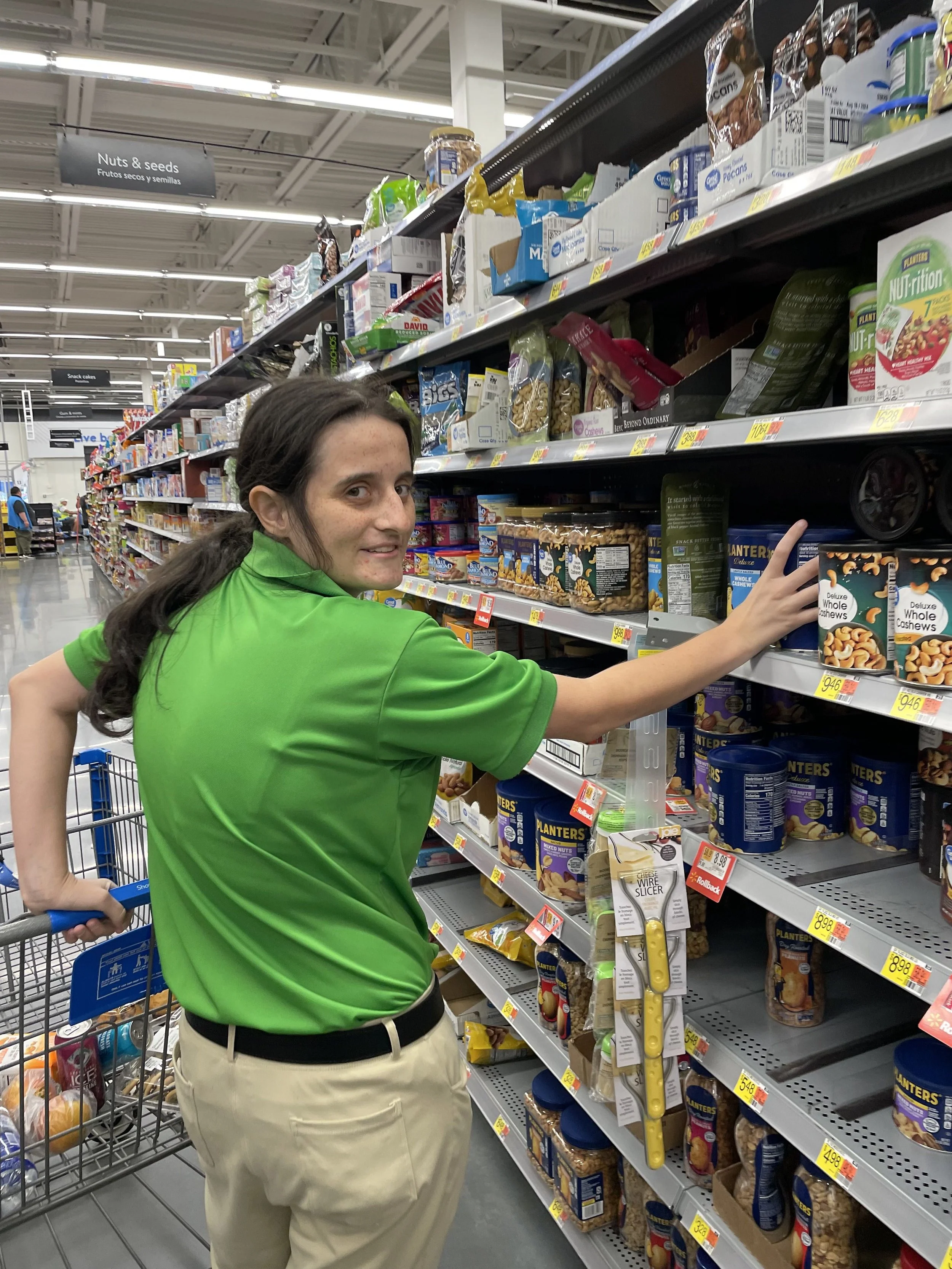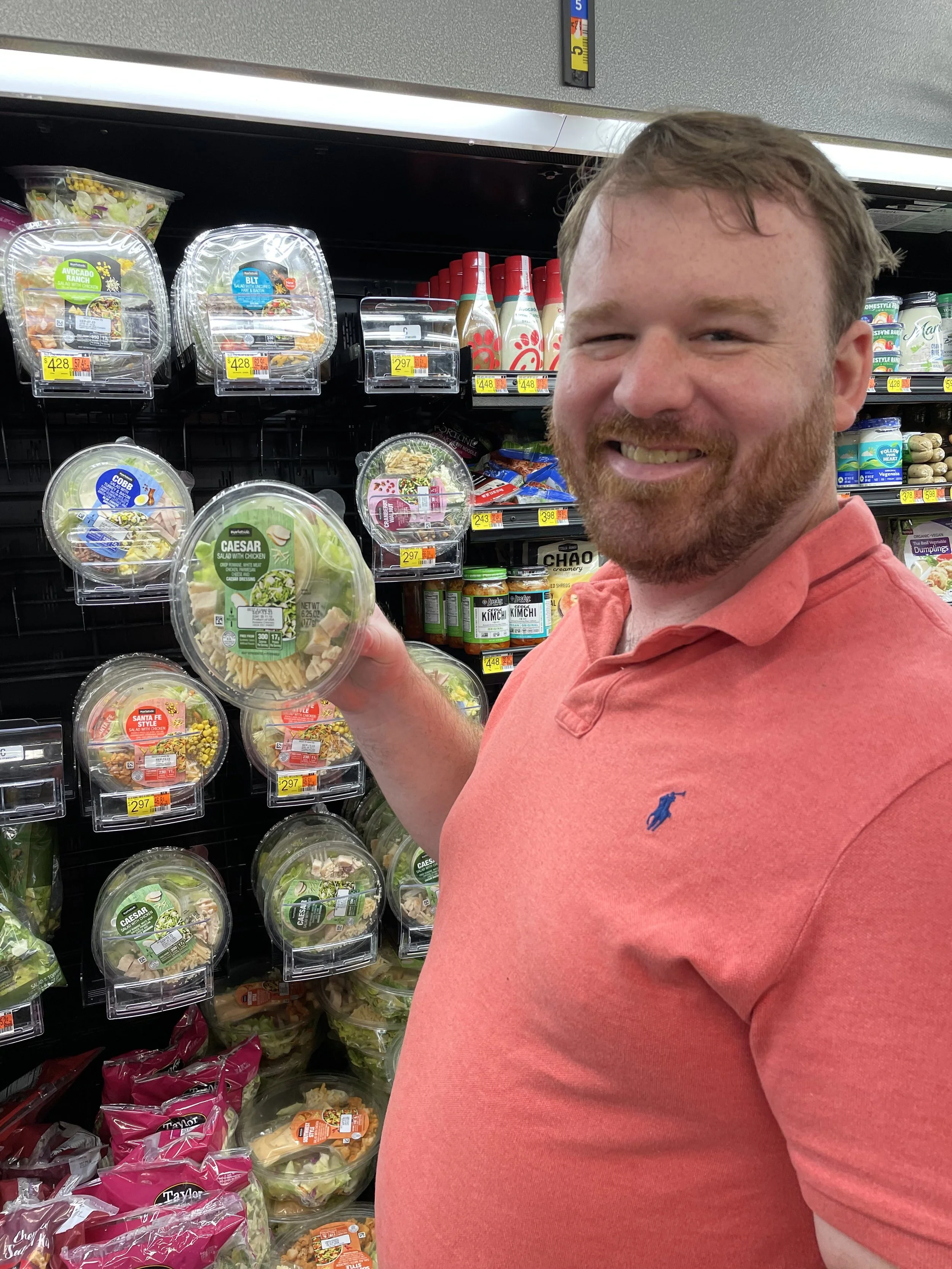Building Independent Life Skills: A Focus on ADLs leading to Self-Sufficiency
In today's fast-paced world, the ability to live independently is more important than ever. Whether you're a young adult moving out for the first time or simply someone looking to become more self-sufficient, building independent life skills can lead to a more fulfilling and empowered life. At Brightstone Transitions, we immerse our young adult clients in the community to teach skills specifically related to ADLs (Activities of Daily Living). Here are 7 examples of ADLs that our clients learn at Brightstone.
1. Financial Literacy
Understanding how to manage your finances is crucial for independence. We start with these steps:
Create a Budget: Tracing income and expenses to see where money goes. Apps like Mint or YNAB (a budget is needed) often help. Grocery Shopping is a weekly ADL example that provides our clients opportunities to learn about budgeting.
Learning about Saving and Investing: Setting up a savings account and learning about investment options. We start small—just teaching that a few dollars each month can grow significantly over time. “Adulting” groups at Brightstone, or courses at one of our three local colleges, are regularly utilized to help educate clients on managing money.
Understand Credit: Learning how credit scores work and how to manage credit cards responsibly. Paying bills on time to build a good credit history is a learning process for our students at Brightstone.
2. Cooking and Meal Prep
Nutrition is vital for both physical and mental health. At Brightstone, cooking provides our clients opportunities to learn money management and social skills.
Keep it Simple: We start simple, learning basic recipes that require minimal ingredients and techniques. Think scrambled eggs, pasta, or stir-fried vegetables.
Meal Planning: Our clients plan meals for the week. This not only saves time but also helps to avoid impulse buys at the grocery store.
Cooking in Batches: We often cook larger quantities and freeze portions for later. This can be a huge time-saver on busier days.
3. Time Management
Managing time effectively can help reduce anxiety and increase productivity.
Using a Calendar or Planner: Whether digital or paper, a planner can helps keep track of appointments, deadlines, and tasks.
Prioritizing: Identifing what’s most important each day and tackle those tasks first. We often refer to the Eisenhower Matrix as a useful tool for prioritizing.
Establishing Routines: Creating daily routines for mornings, evenings, and weekends to create structure. At Brightstone, implementing schedules leads to predictability, which is an essential executive function skill for our young adults.
4. Household Management
Maintaining an organized and functional living space is key to independence.
Basic Cleaning Skills: Brightstone clients learn how to clean, organize belongings, and do laundry properly. We set regular cleaning schedules to keep personal spaces tidy!
Home Maintenance: We often expose our students to basic home repairs, such as changing light bulbs, unclogging drains, and fixing minor leaks. Our skilled Mentors and even professional trades help teach these minor hands-on ADLs.
Organization: Developing systems for keeping belongings organized is essential. Decluttering, learning to fold and hang clothes efficiently, and utilizing shelving and cabinets regularly can help maintain a peaceful living environment.
5. Personal Health and Wellness
Taking care of our physical and mental health is important for independence.
Regular Exercise: Find an activity to enjoy, whether it’s jogging, yoga, dancing, swimming, or otherwise. Brightstone students all have access to a full gym membership and aim for at least 150 minutes of moderate exercise per week.
Practicing Mindfulness: Incorporating mindfulness practices, such as meditation or journaling, to help manage stress and enhance mental well-being is part of our ADLs at Brightstone.
Stay Informed: Learning about nutrition and making informed choices about diet is an important ADL. Understanding what fuels our body can lead to better physical and mental health outcomes.
6. Communication Skills
Strong communication is crucial to develop personal and professional relationships.
Active Listening: Focus on what others are saying and maintain appropriate eye contact while they speak. This helps our students foster better understanding and connection. Often difficult for many of our students, this ADL is practiced daily.
Conflict Resolution Skills: Learn to approach disagreements calmly and seek win-win solutions. Role-playing scenarios are often utilized at Brightstone to help our students practice for real-life situations.
Networking: Building relationships in the community, attending workshops, social events, or joining clubs of interest are all a part of daily living for Brightstone students.
7. Problem-Solving and Decision-Making
Self-advocacy and being able to navigate challenges are key components of independence.
Critical Thinking: Analyze problems by breaking them down into smaller parts. At Brightstone, we work towards simplifying situations by implementing a more manageable step-by step process.
Learning from Experience: Reflecting on past decisions, both good and bad. Understanding what did and didn’t work helps to inform future choices. Utilizing role-play to process actual daily circumstances helps our students improve upon social pragmatics.
Our Approach at Brightstone Transitions
At Brightstone, our motto is “Independence Through Application.” Building independent life skills is an ongoing process that requires patience and practice. We take a hands-on, client-centered approach to teaching ADLs. Our team of experienced professionals guide and support clients through each step of the process. We tailor our program to meet individual needs, ensuring that each client gains the skills and confidence necessary for independent living.



